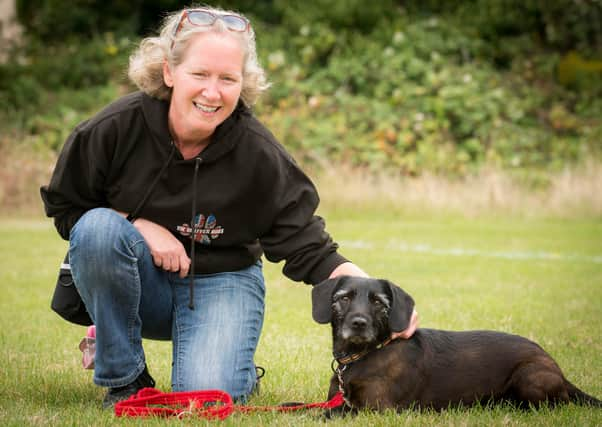Getting to know the law: biting


No, I don’t think you are alone, but there are some things as a dog owner you really should be aware of. Ignorance of the law will not be accepted as a defence if you are unfortunate enough to find yourself on the wrong side of it.
This piece is not meant to make people feel worried or to scare dog owners. I want to help people understand what the law says so that if a situation ever arose that you at least have some understanding of your responsibilities. This law is most definitely NOT perfect, and I personally disagree with many aspects of it, but it is the law. Imperfect or not, we need to live by it, at least for now until it is amended.
Advertisement
Hide AdAdvertisement
Hide AdMost people think this law relates only to what are perceived as ‘dangerous dogs.’ But this law covers all dogs. Yes, there are some dogs that are deemed ‘dangerous’ and are therefore banned from being owned in the UK. If your dog matches the description for the standard of those breeds, your dog could be confiscated and held by the police. They would then be assessed and measured by an expert to determine if they meet those breed standards accurately. What breeds are they? Any type known as Pit Bull Terrier, Argentine Mastiff, Brazilian Mastiff, Japanese Tosa.
In Northern Ireland after Dog Wardens campaigned, they have been grated the ability to approve exceptions for this breed within seven days, a fantastic achievement and one that is not afforded to the rest of the UK. Well done to our fantastic Dog Wardens, they do a fantastic job.
It is important to know what your responsibilities are as a dog owner and to ensure that you understand if you have a dog that may have issues, how you can protect yourself and your dog.
All dogs fall under this law and that of the Animal Welfare Act of 2006, which protects domestic animals from cruelty and ensuring that their basic needs are met. Most of us believe our dog would never bite or injure someone in any way, but sometimes things happen.
Advertisement
Hide AdAdvertisement
Hide AdHere in Northern Ireland, we also have a law called Control of Greyhounds Act 1950, which states that sight hounds (Greyhound, Whippet, Lurcher cross) must be muzzled when in a public space. And furthermore, no more than two greyhounds can be exercised or walked by any one person. I personally have seen many sight hounds without muzzles when out and about and from speaking to owners, that is largely down to the fact they had no idea that was the case.
So how does the Dangerous Dog Act impact you as a dog owner who walks their dog in the park every day? By law we must be in full control of our dogs at all times in a public space, that by the way also includes your garden. When we let our dogs off lead, if we do not have a reliable recall and your dog is likely to ignore you, it is important to understand that you could fall foul of the law if someone or someone’s dog gets injured.
The Dangerous Dog Act states that ‘it is an offence for a dog to behave in a way that causes reasonable apprehension of injury.’ It does not say bite. This basically means if your dog is intimidating someone and they have reasonable apprehension that they may be injured, you can be prosecuted under this act.
It is important to also mention that if you are walking a dog for another person and an incident occurred you would be the person held responsible - not the owner of the dog. This is worth remembering if you are walking someone else’s dog. Before you let them off the lead, are you prepared to take full responsibility for their actions?
Advertisement
Hide AdAdvertisement
Hide AdThe DDA (Dangerous Dog Act) 1991 also states that a child aged less than 16 cannot be held responsible for the dog in a public space and the head of the household will in turn be the accountable adult in that situation. Although that being said, the age of criminal responsibility is actually 10, so if a child opens the door to their home and allows the dog to go out and they injure someone, the child could be prosecuted.
Owning a dog is a big responsibility, most dogs are happy, easy-going characters, but there are times when a dog might misread a situation or make a bad decision. Recall training is critical to help get your dog back to you safely and under control as quickly as possible.
You can take out public liability insurance for your dogs by joining the Dog’s Trust as a member, as it is a free perk. Membership costs £25 per year. Visit www.dogstrust.org.uk/get-involved/membership/ to find out more.
Should you fall foul of the law the court often recommends this insurance as it also shows you are a responsible dog owner and is a very reasonable price.
Advertisement
Hide AdAdvertisement
Hide AdThe majority of the time, even if our dogs do get themselves into a little bit of trouble, it will not lead to a prosecution.
But armed with the right information you are far less likely to get into a sticky situation.